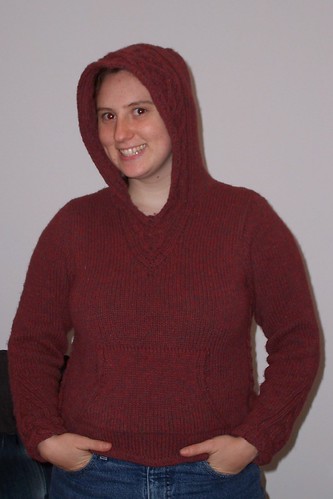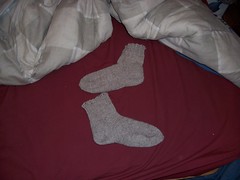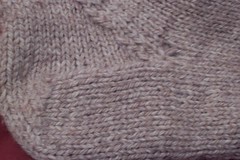Why Do We Bother?
This is a companion post to In Defense of Reasoned Inquiry below. I want to talk more about why it's so important to keep creationism out of science classrooms.
First, let's take a gander over to a fundamentalist Christian blog. Rand, of A Form of Sound Words said this
As for these millions of years of evolution scientists love to throw around so much, here's a quick thought for you: can God create a mountain that has all the physical properties of being millions of years old? If He can, then the evolutionist doesn't have the "proof" he thinks he has.Leaving aside for the moment the small matter of evolution and geology being different fields of study, let's take a good look at this quote. If we accept, as Rand does, that God is omnipotent, then it does of course follow that He can create a mountain with all the properties of being millions of years old. If we furthermore accept that the bible is the word of God, and meant to be taken as literally as possible, then we are left with this one, inescapable conclusion: God is willing to deceive us. The account in the bible and the evidence we see before us simply don't match. If God was responsible for both, then God has lied to us.
Now without getting into a discussion about whether God would or should lie to us (such hypotheticals bore me to tears), I just want to discuss the implications of the fact that God (if such a being exists, and is responsible for the bible in the way Rand claims He is) *has* lied. This means that we cannot trust our senses. We cannot trust the results of our experiments. If we cannot trust the world to be as our senses perceive it and our reason deduces it to be then we can't investigate anything. Let me say that again. We can't investigate anything. If we presuppose the existence of a God that falsifies evidence, the entire field of science is moot. Moot. Hell, even if we didn't have proof that this God falsified evidence, the mere fact that He could would suffice. The musings of Descartes and Hume are fun for keeping ourselves up at night, but the scientist must proceed on the assumption that her results are reliable, or she may as well not bother.
This is precisely why creationism, Creation Science, Intelligent Design, or whatever you want to call it, does not belong in the classroom. By presupposing an intelligent guidance of natural phenomena, it flies in the face of everything science is trying to achieve. It states that things are the way they are, not because of the immutability of natural laws, but because they were arbitrarily designed that way. If that is the case then there is nothing to be learned from studying them and we may as well all go home. I'm not interested in that. There is certainly the possibility that Rand or Descartes or even David Hume were right. That the universe our senses show us bears little or no relation to the universe as it really is, but as there is no possibility of bringing evidence to bear on that conjecture, it does not belong within the realm of science. Take your ID and shove it up your philosophy teacher's ass. It has no place in a science classroom.
(Thanks to my father for providing the main idea behind this post)





